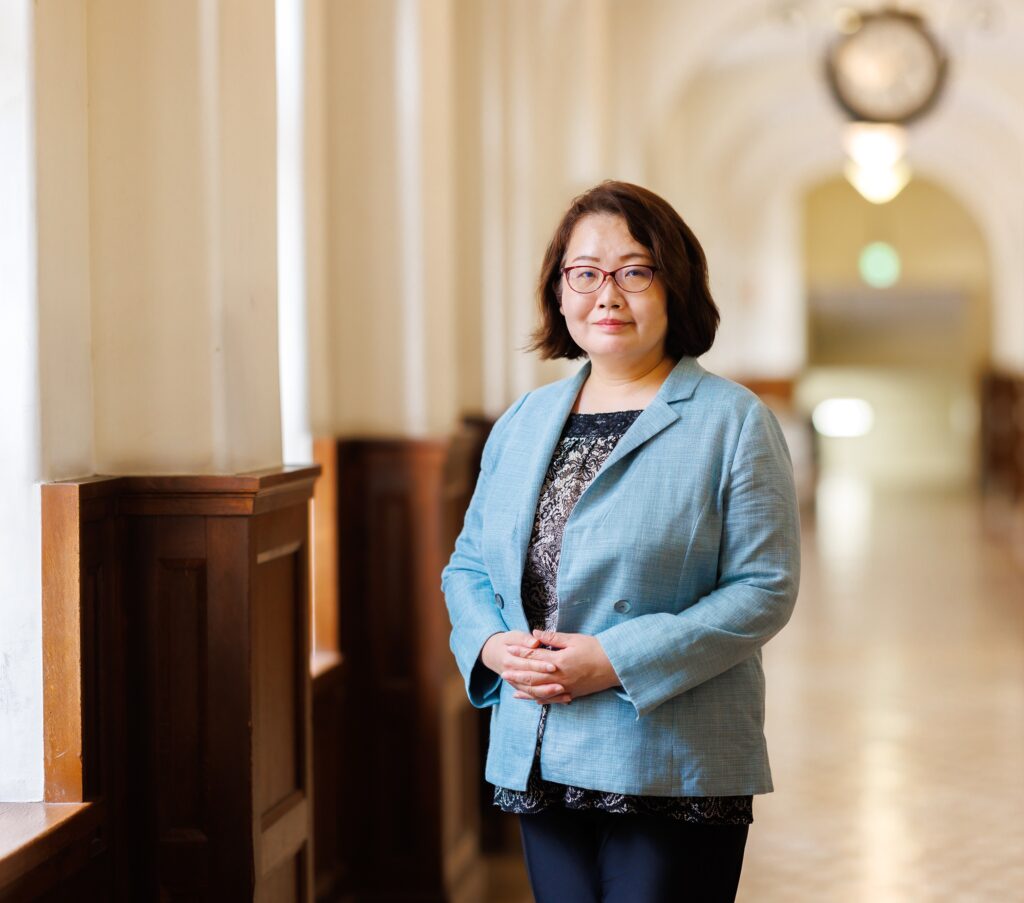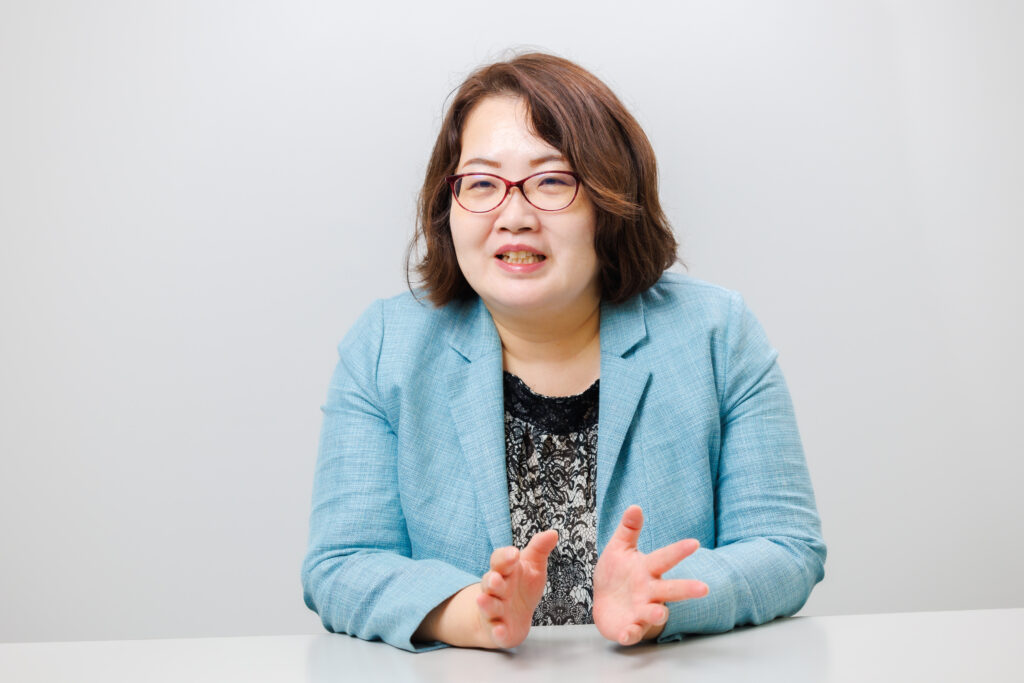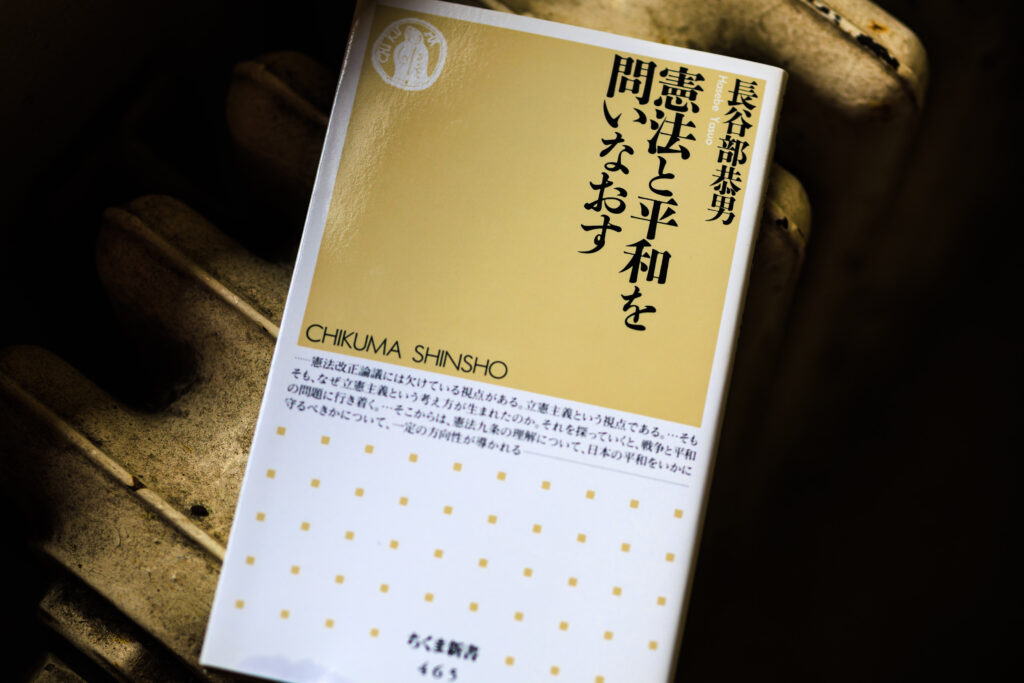
Professor Misaki Maki from the Graduate School of Law has been researching the right to self-determination—explicitly unstated in Japan’s Constitution—with a focus on minority rights. She talks about the characteristics and appeal of the Constitution, which is different from other laws, and the appeal of constitutional theory, in which constitutional interpretations are explored while referring to multiple fields.
Freedom of religion, freedom of expression, and such are stated in the Constitution of Japan, the supreme law of the land. At the same time, ‘new human rights’—such as the right to privacy—are also recognized even though they are not explicitly stated in the Constitution. Out of these new human rights, my research theme is to clarify the meaning of the right to self-determination found within the broader definition of the right to privacy.
There are many discussions surrounding the right to self-determination, including whether to recognize the right to a dignified death and euthanasia.
I am interested in the rights that minorities are asking for—such as the right to abortion and same-sex marriage being debated in the US—as well as related discussions and court cases. I continue to undertake research in this area, and from the perspective of respecting the individual, I believe there are rights that should be recognized for minorities, even if they go against the values of the majority.
Allure of studying various fields beyond law

My research starts by looking at the constitutions and judicial precedents of various countries and comparing them with Japan.
If the theme is same-sex marriage, I look at the US and countries that have already made progress in this area. How was their constitution interpreted to recognize this right? What were the processes taken to reach that conclusion? I will even delve further to investigate historical and cultural backgrounds such as the predominant values of that country and the history behind the formulation of its constitution. This is the academic area known as “constitutional theory.”
A constitutional theory approach expands the scope beyond law to a variety of fields, including political studies, sociology, and history. This is the allure of my research. By uncovering in detail the reasons behind the recognition of a right, it is possible to convincingly advocate that this right should also be recognized in Japan.
Currently, we have the judgments of the first trials for class-action lawsuits regarding same-sex marriage being undertaken in various part of Japan. For the right to be recognized by the Supreme Court of Japan, it is necessary to have sufficient reasons that can convince the judges as well as the citizens of Japan. I would be happy if my research is useful in this effort.
Also paying attention to lawsuits on abortion in the US
I am also paying attention to lawsuits on the right to abortion in the US. This right—recognized for close to 50 years—was overturned in 2022 by the Supreme Court of the US. This memory is still fresh in our minds. In the US, due to the influence of Christianity, there are many people who think abortion should be banned, with two opposing views for many years. I was surprised by this result as the US is a country that emphasizes progressive ideas.
The judgment that denies the constitutional right to abortion was affected by the replacement of a relatively large number of Supreme Court Justices during the Trump administration, increasing the number of conservatives. This led to the intense debate about the methodology for how judges should interpret the US Constitution. Going forward, I intend to monitor the future trends in the US while reviewing the details of my past research.
I hope to convey to the general public the allure of the Constitution. General laws such as the penal code are confined with narrow interpretations, but the Constitution—in particular, the articles on human rights—is broad with much leeway for interpretation. Therein lies the fun of researching the Constitution. Furthermore, the Constitution is founded on the fundamental principle of respecting the individual, making it a very important law for us.
The book I recommend
“Kenpo to Heiwa o Toinaosu”(Reexamining the Constitution and Peace)
by Yasuo Hasebe, Chikuma Shinsho

This is a book by a constitutional scholar that I studied under when I was a graduate student and who led me to my research today that includes the exploration of adjacent field. It explains things necessary for interpreting the Constitution—such as its raison d’être and its relationship with peace—in ways easy for the general reader to understand. I highly recommend this book for high school students.
-
Misaki Maki
- Professor
Juris Doctor Program (Law School)
Graduate School of Law
- Professor
-
Graduated from the Faculty of Law, The University of Tokyo and obtained her Ph.D. in Law after completing the doctoral program of the university’s Graduate Schools for Law and Politics. Took on several positions—such as professor at Chiba University Law School—before assuming her current position in 2017.
- Juris Doctor Program (Law School)
Interviewed: September 2023